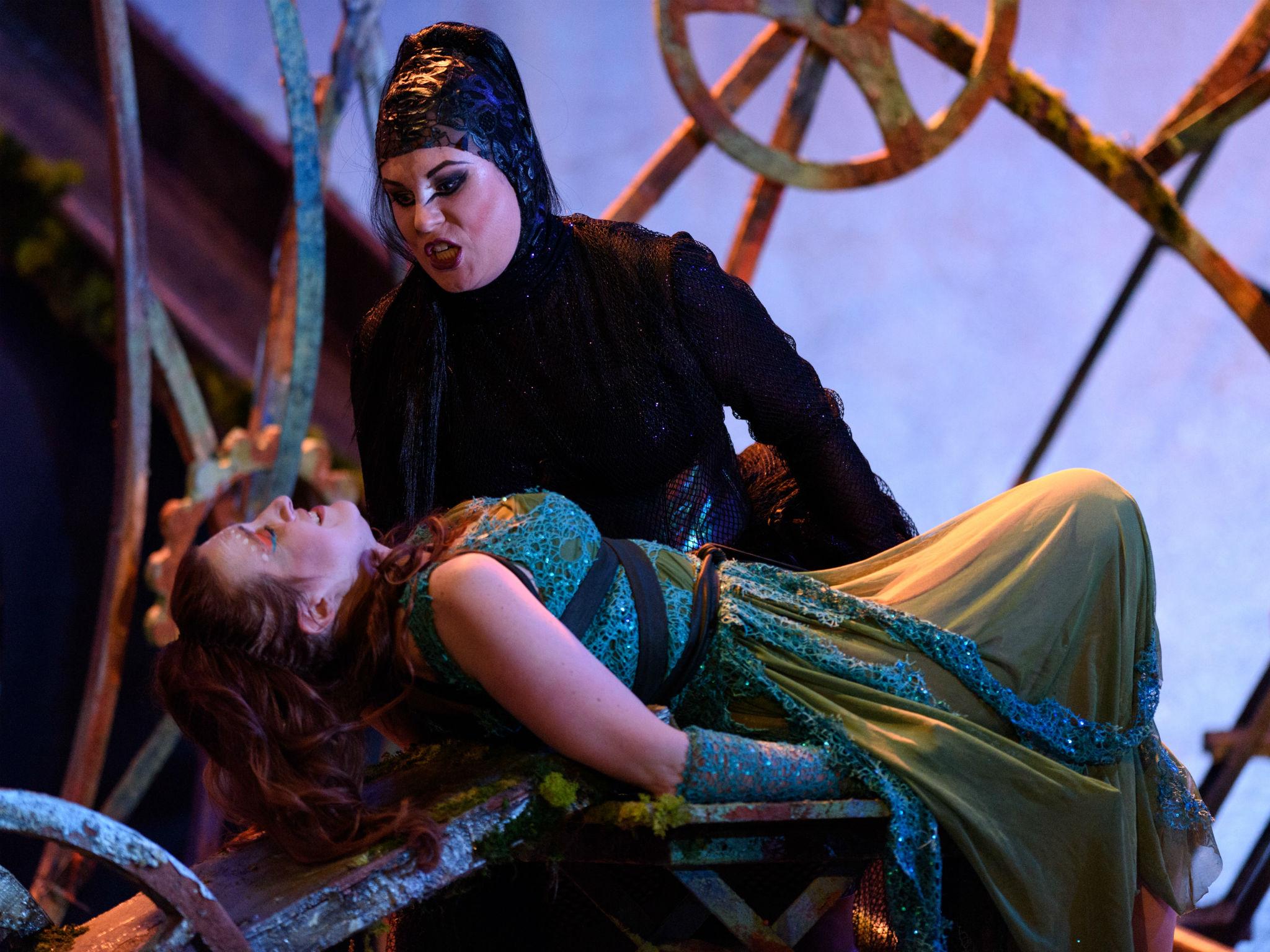La Calisto/Il ritorno d’Ulisse, English Touring Opera, Hackney Empire, review: 'Il ritorno - the drama has the immediacy of last night’s TV'
English Touring Opera pulls off two more unmissable shows, particularly with Monteverdi's ll ritorno d’Ulisse, which scores top marks

Your support helps us to tell the story
From reproductive rights to climate change to Big Tech, The Independent is on the ground when the story is developing. Whether it's investigating the financials of Elon Musk's pro-Trump PAC or producing our latest documentary, 'The A Word', which shines a light on the American women fighting for reproductive rights, we know how important it is to parse out the facts from the messaging.
At such a critical moment in US history, we need reporters on the ground. Your donation allows us to keep sending journalists to speak to both sides of the story.
The Independent is trusted by Americans across the entire political spectrum. And unlike many other quality news outlets, we choose not to lock Americans out of our reporting and analysis with paywalls. We believe quality journalism should be available to everyone, paid for by those who can afford it.
Your support makes all the difference.Francesco Cavalli’s La Calisto is the most intriguing of 17th-century Venetian operas. Filled with Monteverdian echoes and Baroque adumbrations, and maintaining romantic passion, comic sexual ambiguity, and rutting carnal lust in perfect balance, its direction requires many skills. Timothy Nelson, who boldly both conducts and directs ETO’s new production, has only some of those skills: crude characterisation and an obsession with unfunny sight gags ruin the first half of the evening, but in the second Cavalli’s serene conception shines gloriously through.
The cast, when allowed to sing unhampered by superfluous business, is strong. Paula Sides finds the right vocal mode for the title role, while George Humphreys – incarnating Jove in two guises – impresses both as baritone and falsettist; Catherine Carby’s sound as Diana is ravishing from top to bottom of her register. Tenor Nick Pritchard’s Mercury periodically transcends his imposed Julian Clary-style foppishness to sing with eloquent grace, while Tai Oney’s differently-encumbered Endymion delivers counter-tenor singing of rare refinement.
Meanwhile the third element in ETO’s touring package – an uneven Xerxes was the first – turns out to be one of the most accomplished Monteverdi stagings I have ever seen. James Conway’s direction is faultless. Jonathan Peter Kenny’s conducting of the period-instrument Old Street Band responds to every nuance in the score, with lovely theorbo and viola da gamba continuo; designer Takis and lighting designer Mark Howland have found an elegantly simple way of making Monteverdi’s sound-world visible. For La Calisto, set in the heavens, they created a pen-and-wash impression of planetary motion; for Il ritorno they place a row of giant bows (which double as a boat) opposite a moveable wall whose panels become doors and windows; red ropes symbolise the death-dealing flight of arrows; painterly lighting changes suggest the blue sky, the boundless green sea, the parched red earth.
Conway sets out his intentions in a programme essay: in this tale of murderous usurpers and angry gods, he says, the “true adventure” is the reuniting of Penelope and Ulysses thanks to “something stronger than time, fortune, or erotic love”. This show has no pretentions to contemporary relevance – the costumes are Attic, the body-language has classical restraint, and the whole thing has a timelessly grave momentum – yet the drama has the immediacy of last night’s television.
Monteverdi’s music breathes through the sung word, and each singer honours that truth in a way which reflects their character (or characters). The women are vividly delineated: Carolyn Dobbin with tragic gravitas as Penelope, Katie Bray a forceful Minerva, Martha Jones doubling charmingly as Melanto and Amore. The male voice trio with Eumaeus (John-Colin Gyeantey), Telemachus (Nick Pritchard), and Antinous (Andrew Slater, who also sings Neptune), is sublime; Adam Player’s gluttonous Irus is a prize grotesque, Robert Anthony Gardiner and Clint van der Linde both excel in three roles, while Benedict Nelson’s Ulisse, projecting wounded nobility, sings us out gorgeously in the emotionally washed-clean close. Unmissable – and touring in the next few months to a theatre near you.
Join our commenting forum
Join thought-provoking conversations, follow other Independent readers and see their replies
Comments